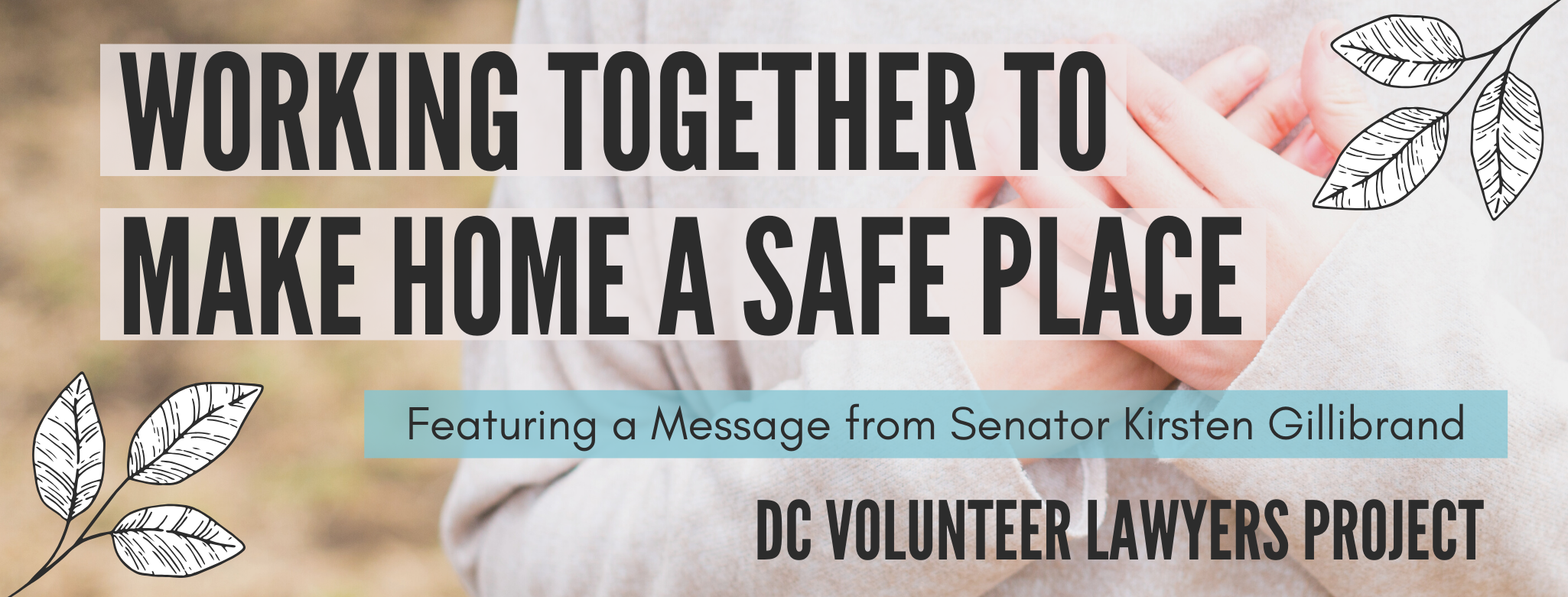Child Advocacy During COVID-19: Connecting Kids
By Richard Kelley, Lauren Snow, Jen Stillerman and Robyn Swanson
During these uncertain times, it can be challenging for court-appointed child advocacy attorneys to find ways to connect with and support our child clients. Hearings have been postponed, visitation schedules have been upended, school and social supports have disappeared. Our clients are more isolated and vulnerable now than ever. As child advocacy attorneys, what can we do to help our clients during this time? What can we do to support our clients and ensure they are safe? How can we maintain connection?
Last week, DCVLP’s Child Advocacy Program developed “Connecting Kids,” strategies to help child advocacy attorneys navigate this difficult period. And this week, DCVLP hosted a one-hour webinar for our volunteer child advocacy attorneys to highlight recent challenges and success stories. During the webinar, we talked about the four “links” identified in our “Connecting Kids” handout – child advocacy attorneys, technology, schools, and third parties – and the ways that we can promote these links.
As child advocacy attorneys, we are the most important link for our clients. Now that in-person visits with our clients at their school and home are no longer an option, we discussed using visual forms of technology such as Facetime and Duo to communicate with our clients and their families, and checking in on a regular and more frequent basis. Yes, it may feel a bit awkward at first. But we’ve found that many of the families we deal with are already using video calls to check in with therapists, medical providers, and social workers.
Technology and schools are two other important links for our child clients during this time. We discussed how child advocacy attorneys can promote these links by making sure that families are aware of technology options, including hotspots and laptops being distributed by DC Public Schools. Child advocacy attorneys can also be proactive about reaching out to their clients’ schools. If the school does not have updated contact information for the household, child advocacy attorneys can let the school know the best way to reach them. Child advocacy attorneys can also be an intermediary between the family and the school if the client is having difficulties with remote learning.
In one of our recent cases, the children had had no contact with their school since schools closed and were not participating in any remote learning. The school made several attempts to contact to the family, and planned to ask the police to do a welfare check. Instead, the school reached out to the child advocacy attorneys. The attorneys were able to get in touch with the family and confirm that everyone was okay. The attorneys were also able to connect the family to the school and ensure that their clients got the technology they needed to participate in remote learning. Police involvement was avoided.
Finally, third parties can be an important and often overlooked link for our clients during this time. Recently, the caregiver of one of our very young clients notified the child advocacy attorney that she had experienced a potential exposure to COVID-19 in her workplace and was exhibiting symptoms. Our immediate concern was – what is going to happen to this child if the caregiver is hospitalized or becomes too sick to care for her, or we cannot reach the caregiver? The attorney was able to do some contingency planning with the caregiver to determine what steps the caregiver would take in the event she became sick. The caregiver identified another family member who was willing and able to care for the child in an emergency, and the child advocacy attorney reached out to that individual to confirm that she was on board with that plan.
The child advocacy attorney also tried to think broadly about other adults in the child’s life, such as other extended family members who had regular contact with the child and other adults living in the household. She prioritized reaching out to them at the beginning of her investigation in order to establish a connection before a potential crisis unfolded. Then, if the child advocacy attorney was unable to reach the caregiver in the future, she had other ways to check up on the child and to determine if court intervention was needed.
While times are tough, there is still much we can do as child advocacy attorneys to help vulnerable children. Thank you to all our volunteer child advocacy attorneys for your ongoing dedication to your child clients in these difficult times and thank you to our supporters who make our work with child victims possible.




